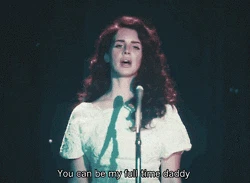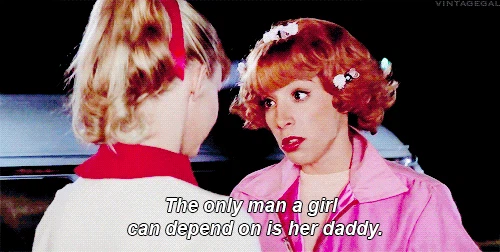Daddy Issues, Explained: Here’s How A Girl’s Confidence Is Built Or Destroyed By Her Father
Both young boys and girls benefit from a present, loving father, but when dads leave their daughters with emotional gaps, they may change the way their little one views relationships for the rest of her life.

“Go ahead and cry, little girl,” crooned Jesse Rutherford of pop rock band The Neighborhood. “I know that you got daddy issues.”
The 2015 song, “Daddy Issues,” tugged on the heartstrings of young women who could resonate with this melancholic, bittersweet pas de deux of navigating romance after having grown up experiencing complex or outright dysfunctional relationships with their fathers.
“Daddy issues” don’t refer to one specific father-daughter relationship dynamic – it’s an overarching, pejorative, and oftentimes stereotyped term used to explain the mental state or behaviors of someone who had a bad relationship with their dad.
We often talk about fatherhood in the context of cultivating the next generation of strong, well-adjusted men, but the role of a man in his daughter’s life is mutually critical and can make or break her life that lies ahead.
Got Daddy Issues?
Though some may chalk up daddy issues to mere folk or pseudo-psychology, women who had complicated relationships with their dads – no matter mild or severe – can point to their own proverbial scars. While a good mother serves as a much-needed model for her daughter, nothing can truly replace the impact of an attentive, loving father.
Daddy issues are best explained through the modern psychological line of thought known as attachment theory. Psychologist John Bowlby surmised that your early relationship with your caregivers is what informs how you connect with the people around you in adulthood, and four attachment styles have been identified by researchers. The secure attachment style develops from healthy relationships and looks like a child growing up able to regulate emotions, seek support, and manage conflict.
The ambivalent insecure attachment style develops from limited parental availability and looks like a child growing up craving close relationships, struggling to trust others, needing reassurance, and struggling with anxiety and jealousy.
The avoidant insecure attachment style develops from neglectful or unempathetic relationships and looks like a child growing up with patterns of withdrawal or distance, strong emotional guarding, and a tendency toward casual relationships.
The disorganized insecure attachment style develops from inconsistent parenting or abuse and looks like a child growing up feeling confused by intimacy, plagued by delusions of unworthiness, and a tendency toward antisocial or aggressive behaviors.
The attachment style we develop in our most sensitive, formative years has a major impact on our ability to connect with romantic partners and, of course, our own children. This is why you’ll hear the phrase “hurt people hurt people” in reference to generational trauma in general, but also childhood sexual abuse which is linked to a higher chance of revictimization in adulthood.
Only a little over half of adults are thought to have secure attachment, which indicates that quite a few of us struggle with daddy issues in one way or another. Studies have shown that, among daughters with insecure attachment to their dads, there is a link to her experiencing symptoms of depression. If the dad isn’t in the picture, a girl is sadly more likely to engage in early promiscuity, become a teen mom, and even fall victim to the predatory, often abusive pornography industry.
Father Wounds May Manifest in Silent Symptoms
A quick romp on your search engine of choice for “daddy issues checklist,” “daddy issues quiz,” or “how do I know I have daddy issues” will lead you to self-assessments to see if you too qualify under this folk umbrella term.
Was your dad regularly or often absent? Was he emotionally detached or unavailable? Was he overbearing or controlling? Did he mistreat you with his hot temper or impulsiveness? Was your dad unreliable, whether that was physically, emotionally, or financially? Did your dad experience substance abuse or addiction in front of your own eyes? Was he a constant source of rejection or disappointment?
Do several or only some of these resonate with you? Well, you might have daddy issues. But, since each relationship is quite unique from the next, the way these issues manifest in your own personal life may be quite different from a gal pal who also feels like she’s got daddy issues.
If a girl grew up with a cold, unloving, and perhaps even absent father, she might overcompensate for that affection she craved by seeking out relationships with older men, being more eager to please, and acting submissively. A dysfunctional father causes this subconscious desire in her for a man who can honestly adore and protect her as though he was the ideal dad she never had. An older man might seem more appealing because he has that settled, stable lifestyle with his finances in order.

If a girl grew up with an emotionally unstable father, she might have grown used to the idea that any future boyfriend or husband could leave her at the drop of a hat. This anxious attachment style she developed might make her more protective, possessive, or clingy. If her father was a helicopter dad, she might look for her man to be similarly domineering. If her father was a loose cannon, she might try to overly control her relationships and do absolutely anything in her power to keep a man in her life.
If a girl grew up with a ruined father, someone perhaps consumed by their own distress or self-destructive dependencies, she might become rebellious herself since it’s the world she has come to understand. Her daddy issues may manifest in risky behavior like having multiple sexual partners from a young age and taking drugs or drinking alcohol as a minor. Her father’s weaknesses may make her more susceptible to easy manipulation and exploitation by future men for financial or sexual means.
This last model is what you’ll often see people referring to when they’re chit-chatting about daddy issues. We should be reasonably skeptical of the concept, since it’s not a verifiable, diagnosable disorder, but it does very well seem to be a real phenomenon. Some young women will indeed act out in order to get attention and feel validation from male figures because their own fathers couldn’t give them that for one reason or another.
Daddy issues can range from mild to severe. Maybe a young woman just can’t seem to stay single, rebounding from one relationship by immediately diving into another. I won’t name names because I have no proof, but we can all think of one global pop icon, can’t we? Maybe a young woman has trust issues, feeling irrationally fearful that her boyfriend will cheat or leave. So, she snoops through her man’s phone or his personal belongings. Maybe a young woman struggles with saying “no” because she is too used to sacrificing her own boundaries. So, she lets herself get walked all over like a doormat.
Maybe a young woman also picks problematic partners. Her own self-esteem might be predicated on a man desiring her sexually, so she uses sex to feel love. A woman with severe daddy issues may be a victim of routine sexual abuse.
Several studies show unmistakable correlations between experiencing sexual abuse in adolescence and going into “sex work,” as sex-positive activists like to call prostitution. Sure, some women become OnlyFans “models,” cam girls, strippers, or bonafide prostitutes by their own volition, but it’s worth at least acknowledging that women who work in the sex trade experienced higher rates of childhood abuse.
It’s actually quite sad when you really start to think about it. Year after year, a developing girl tries – but unfortunately fails – to receive adequate, healthy male attention and validation from a good father or even father figure. Then, in the blink of an eye, she can get all the attention she could ever ask for by using her body. This chronological sequence teaches her that she can satisfy her natural starvation for male attention through sex. How soon until that warped sense of self-worth leaves her an easy target for manipulation or exploitation? How soon until that dopaminergic boost wears off? How soon until it breaks her?
Daddy’s Little Girl Won’t Stray If He Shows Her True Support
Especially given he’s the closest individual of the opposite sex, a father’s role in his daughter’s development is vital. Yes, there are endless points of discussion on mommy issues – especially how people tend to overlook toxic femininity, overbearing matriarchy, and destructive gynecocracy – but society honestly needs to know just how impactful a good father can be.
Since men, on average, tend to be a bit more emotionally guarded than women, it’s not always second nature for fathers to understand how to properly show affection. Expressing love is a skill that you hone over time, and each person speaks very different love languages. Perhaps you’re dating or married to a man whose nurturing instincts may need a bit of improvement. Perhaps you’re looking to have kids with him, or you already do. As devoted partners to the men in our lives, there are several ways we can encourage them, as fathers, to build up the confidence of their daughters.
More than just a daddy-daughter date every so often, encourage him to read to her, play pretend with her, show interest in her favorite toys, tell her she’s pretty, praise her achievements and positive characteristics, embrace her warmly, kiss her head and cheeks, and listen to her with full attention and eye contact. We’re a more egalitarian society, right? Ask that he spends extra time with her while you get a bit of time to take care of personal errands alone, and if that has to be on the weekend due to his own work schedule, then so be it.

Harvard-trained parenting expert Kimberly Wolf detailed eight specific strategies in a piece for CNBC that fathers can use to raise strong, confident young women, and of those, two are far less regularly discussed but incredibly important. Wolf advises that great fathers shouldn’t be intimidated by uncomfortable topics. A man sees the world through a different lens than a woman, no matter how united the parents are on their values – if he can introduce mature concepts to her that might be more sensitive for a mother to discuss, her trust with him will grow.
He can also use his unique life experience to capitalize on teachable moments, as Wolf put it. This can happen when, say, he’s watching a show with his daughter, and there’s an opportunity to point out a challenging issue characters are going through and offer his own wisdom. If he’s there to answer the questions that might be running through her head, she’ll look to his perspective on how to handle her own tricky situations. But, as Dr. Jerry Bubrick, a clinical psychologist for the Child Mind Institute, put it, fathers shouldn’t just lecture; they should actively listen to their daughter’s questions or problems so that she can build critical thinking skills.
The National Center for Fathering urged one strategy to build up a kid’s self-esteem that may take people by surprise: “Appropriately hold, touch, and caress your child, and don’t stop when she starts to physically develop into a woman.”
As a girl grows older, she herself might withdraw from physical affection because she’s going through puberty, becoming more aware of her own body and how it affects her male peers, and even perhaps going through a little bit of a rebellious streak. She might feel super self-conscious about her changing body, but that’s no reason not to hug a young girl and show her appropriate physical affection that validates her worth. Don’t let physical affection fall by the wayside – it has such positive impacts on a developing kid’s self-worth. Adolescents develop norms by watching how their parents act, so if a girl suddenly loses physical closeness with her father, she might feel less emotional closeness or start looking for love in many of the wrong places.
It’s Not Impossible To Resolve Your Daddy Issues – Here’s How To Heal
It’s no simple task trying to overcome the emotional wounds from awkward to outright abusive relationships with your father. But you can start to heal by getting introspective and really digging deep into why your self-esteem may be lower than it should be.
It’s also not a simple task admitting to yourself that your relationship with said parent was less than ideal. Your blood family is how you exist in the here and now, so instead of coming to terms with their wrongdoings, you might naturally feel inclined to excuse their bad behavior or blame yourself. But repressing the truth will only make things worse.
Your first step should be identifying a reliable support system in whom you can comfortably confide, whether that’s a group of friends, a faith leader, a therapist, or any close loved ones. While a best friend certainly could never replace the love from your biological parents, surrounding yourself with positive role models and building healthy relationships can help keep you on the right path. Plus, you never know if the support you’re mutually offering in a friendship is helping them heal from their own traumas.
In terms of therapists, attachment trauma may be healed through practices like somatic therapy, cognitive behavioral therapy (CBT), interpersonal therapy, and of course, family therapy. To augment this on your own, however, you could consider journaling about the experiences in your childhood. By taking time to draw memories out of your mind and put them out on paper (or type them up with a keyboard), you could identify cycles of trauma and even generational patterns. Get to know your inner self through some shadow work, and don’t hide away from even the darkest shadows that might start to show.
If appropriate, faith may indeed be one of your best paths forward, even if you are questioning, skeptical, or were raised without it, because of the father-daughter relationship you could develop with God. Where humans fail (and boy, do they fail quite often), a divine Creator is someone who serves as the perfect father figure to watch over you, provide wisdom, and reassure you that you’re not a mistake.
When you’re ready – and if it’s appropriate and safe – you may want to work on building a better relationship with your dad. Now that you’re an adult and can stand on your own two feet, this is the time that you can speak to him as his full equal.
I completely get it – you might not want to forgive your dad for his shortcomings, but if you harbor resentment in your heart, you may not ever move forward. Your forgiveness doesn’t excuse or condone his mistakes, but by at least offering him the benefit of the doubt and opening the door to make amends, you’re giving yourself the chance to be rid of toxic emotions.
Closing Thoughts
There’s a positive, love-filled future ahead for you. While I’d certainly never downplay the effects that emotionally unavailable, self-destructive, or abusive fathers can have on a growing girl, I do know that there’s a path for everyone to heal. The healing process might be anything but linear, and it certainly won’t happen overnight, but you can break the cycle.
Support our cause and help women reclaim their femininity by subscribing today.